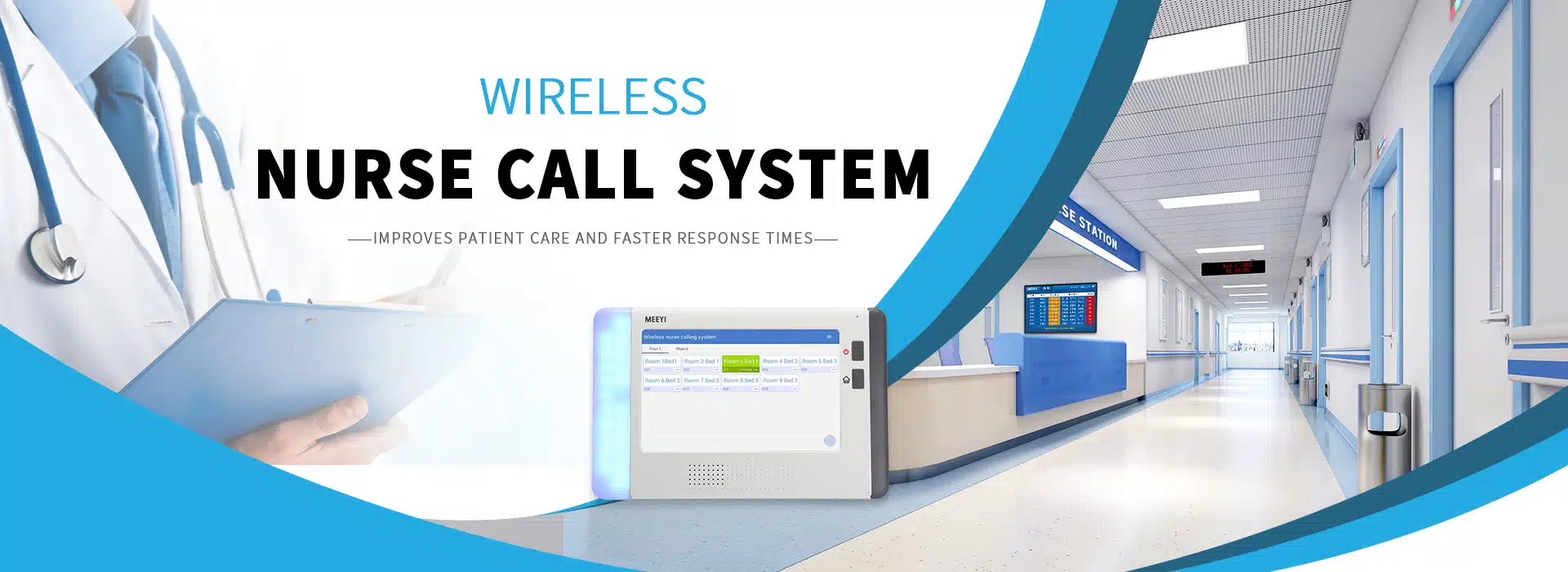Future of Patient Care: Advancements in Nurse Call Systems

As healthcare continues to evolve, the role of technology in patient care is becoming increasingly vital. One area that has seen significant advancements is nurse call systems. These systems are essential for facilitating communication between patients and healthcare providers, ensuring timely responses to patient needs. Among the latest innovations, wireless nurse call systems are leading the way, offering enhanced functionality, improved efficiency, and better patient outcomes. This article explores the future of patient care through advancements in nurse call systems and how these innovations are reshaping the healthcare landscape.
The Importance of Nurse Call Systems
Nurse call systems have long been a cornerstone of patient care in hospitals and other healthcare settings. They allow patients to alert nursing staff when they need assistance, whether for medication, comfort, or emergencies. The effectiveness of these systems directly impacts patient satisfaction, safety, and overall hospital efficiency.
Enhancing Patient Experience
A well-functioning nurse call system is crucial for enhancing the patient experience. When patients feel they can easily reach their caregivers, it fosters a sense of security and trust. This emotional support is vital for recovery and overall well-being. However, traditional wired systems often suffer from limitations, such as inflexibility and the inability to quickly adapt to changing healthcare environments.
The Shift to Wireless Nurse Call Systems
Advantages of Wireless Technology
Wireless nurse call systems have emerged as a modern solution to the challenges posed by traditional wired systems. Here are some key advantages:
-
Flexibility and Scalability: Wireless systems can be easily installed and expanded, making them ideal for facilities that may undergo renovations or expansions. This adaptability allows healthcare facilities to scale their systems according to their needs.
-
Reduced Installation Costs: With no extensive wiring required, the installation process for wireless nurse call systems is quicker and less costly. This reduction in installation time minimizes disruption in patient areas.
-
Enhanced Mobility: Wireless systems allow nurses and caregivers to receive alerts on mobile devices, such as smartphones or tablets. This mobility enables staff to respond more quickly to patient needs, improving response times and patient satisfaction.
-
Real-Time Data Analytics: Many modern wireless nurse call systems come equipped with data analytics capabilities. This allows healthcare providers to monitor response times, patient needs, and staff performance, leading to continuous improvement in care delivery.
Integration with Other Technologies
Wireless nurse call systems are increasingly being integrated with other healthcare technologies, enhancing their functionality. For example, integration with electronic health records (EHRs) allows healthcare providers to access patient information directly from their mobile devices, streamlining workflows and improving communication.
Furthermore, the integration of Internet of Things (IoT) technology enables nurse call systems to connect with various medical devices, such as vital sign monitors. This connectivity allows for real-time monitoring of patient conditions, enabling healthcare providers to respond proactively to changes in patient health.
Improving Patient Safety and Outcomes
Faster Response Times
One of the most critical advantages of wireless nurse call systems is their ability to improve response times. Studies have shown that quicker response times lead to better patient outcomes. For instance, having alerts sent directly to nurses’ mobile devices allows them to respond to patient needs without delay, reducing the risk of complications.
Enhanced Communication
Effective communication is essential for providing high-quality patient care. Wireless nurse call systems facilitate better communication among healthcare teams. For example, a nurse can quickly communicate with a physician regarding a patient’s condition through integrated messaging features, ensuring that all team members are informed and can act accordingly.
Increased Patient Engagement
Modern nurse call systems are designed to empower patients. Many systems allow patients to not only call for assistance but also provide feedback on their care experience. This two-way communication fosters a more engaged patient population, encouraging patients to take an active role in their care.
Challenges and Considerations
While wireless nurse call systems offer numerous benefits, there are also challenges to consider:
-
Data Security: With increased connectivity comes the responsibility to ensure data security. Healthcare facilities must implement robust cybersecurity measures to protect patient information.
-
Training and Adoption: Staff training is essential for the successful implementation of new technology. Healthcare providers must invest in training programs to ensure that staff members are comfortable using wireless nurse call systems.
-
Integration Issues: While integration offers many advantages, it can also pose challenges. Ensuring that wireless systems work seamlessly with existing technologies requires careful planning and execution.
The Future of Nurse Call Systems
The future of nurse call systems is bright, with ongoing advancements promising to further enhance patient care. Emerging technologies such as artificial intelligence (AI) and machine learning are expected to play a significant role in the evolution of nurse call systems. These technologies can analyze data from patient interactions to predict needs and optimize staffing levels, ultimately improving care delivery.
Customization and Personalization
As patient-centered care continues to gain traction, future nurse call systems will likely offer more customizable and personalized features. For instance, systems may allow patients to choose their preferred method of communication or customize alert settings based on individual needs.
Telehealth Integration
The rise of telehealth has transformed the healthcare landscape, and nurse call systems will increasingly integrate with telehealth platforms. This integration will enable healthcare providers to conduct virtual consultations directly from the nurse call system, allowing for efficient triage and care.
Conclusion
Advancements in nurse call systems, particularly the rise of wireless nurse call systems, are revolutionizing patient care. These systems enhance communication, improve response times, and empower patients, ultimately leading to better health outcomes. As technology continues to evolve, the future of nurse call systems promises even greater innovations that will further enhance the quality of care in healthcare settings. By adopting these advancements, healthcare facilities can ensure they are well-equipped to meet the needs of patients in an increasingly complex healthcare landscape.





